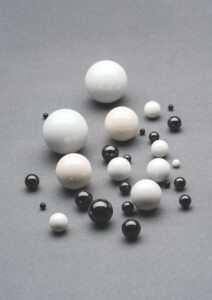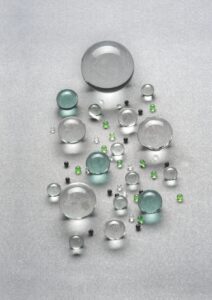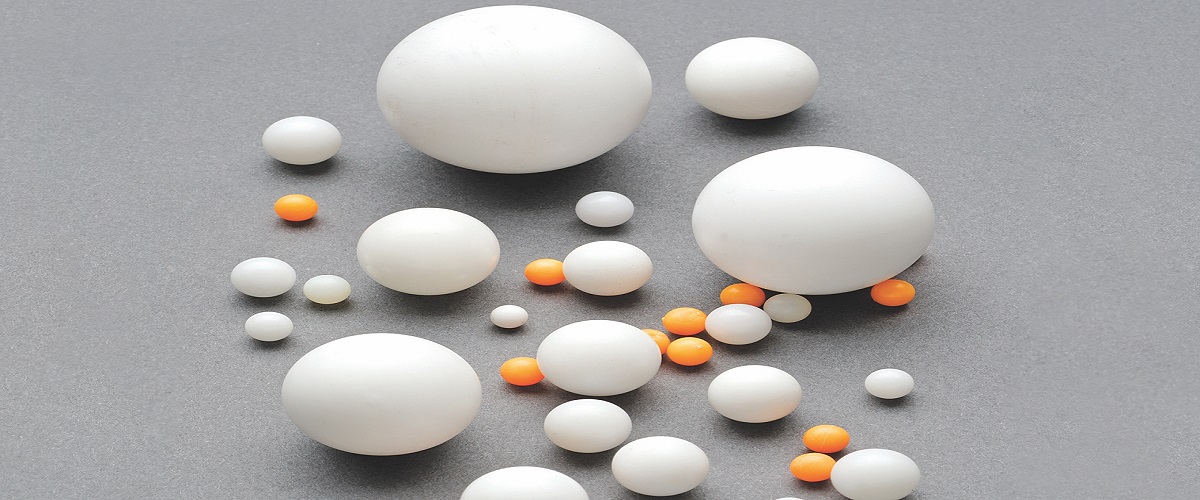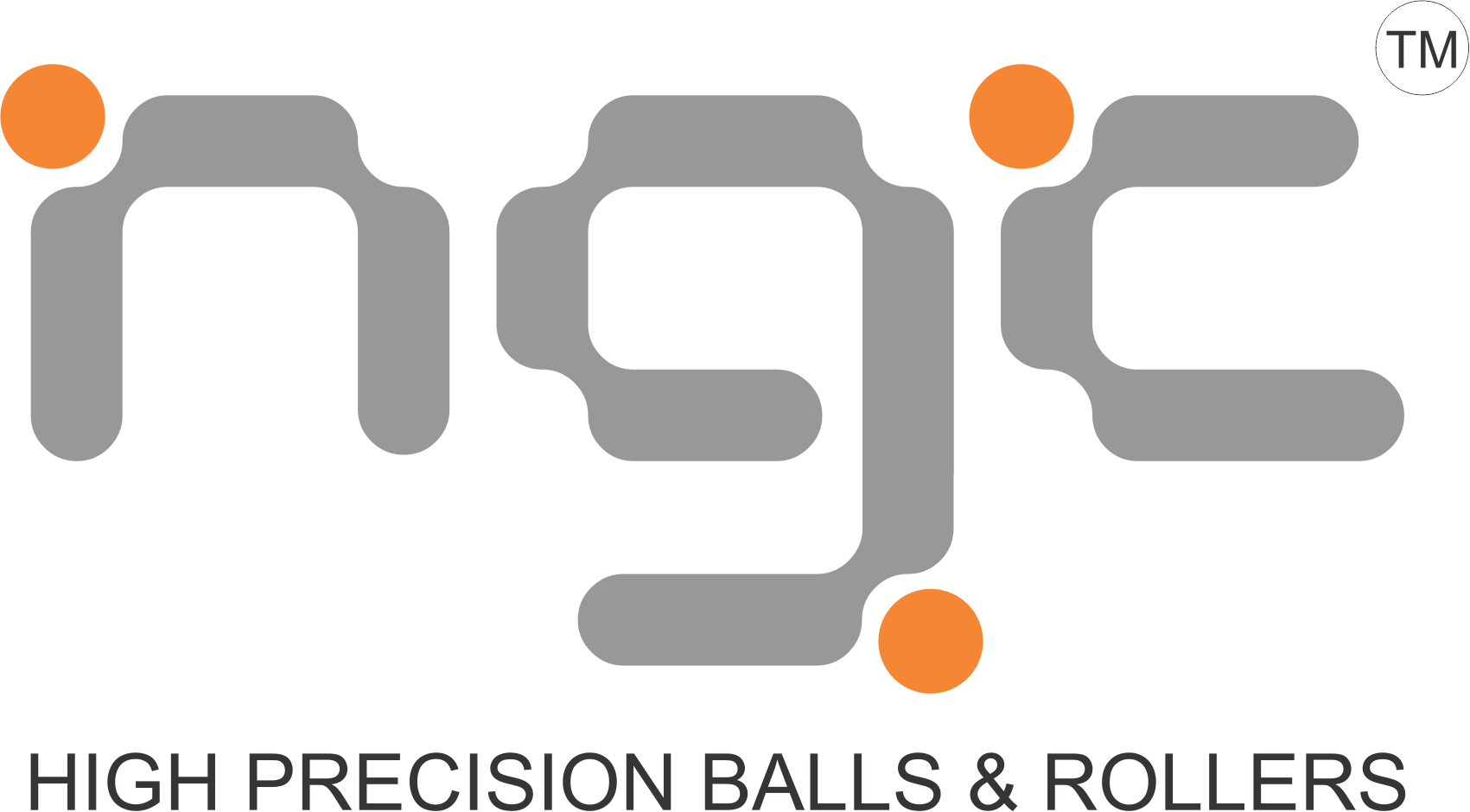
Ceramic balls are particularly suited to harsh environments. Their main advantages over steel is that they have a density of 40% tower than steel. Have 29% lower thermal expansion and are 150% harder. In certain high-speed applications their life is extended by as much as a hundred times. The three main materials used are Alumina Oxide, Zircona Oxide and Silicon Nitride.
Si3N4 SILICON NITRIDE
Al2O3 99.50% ALUMINA (ALUMINA OXIDE)
ZrO2ZIRCONIUM OXIDE
Al2O3 99.99% RUBY
Al2O3 99.99% SAPPHIRE

Glass Balls are dimensionally stable, resist corrosion and chemical absorption and can withstand high temperatures (up to 600 °F .) Density varies depending on the type of glass used to manufacture the ball. We provide high precision balls from the following types of glass:
SODA-LIME GLASS
BOROSILICATE GLASS
BLACK GLASS

Plastic balls are manufactured from standard and specially polymer resins in size from 3/32” – (2.381 mm) to 5” – (127 mm). Balls above 1″ – (25.4 mm) are manufactured from extruded rod. Plastic balls are a cost-effective substitute for metallic balls in low load bearings. They are also used as agitators in aerosol spray cans, lightweight check valves, medical diagnostics and a wide variety of other applications.
Tolerances to +/-0.0005″ (+-0.0125 mm) are possible for certain materials such as nylon and acetal. Surfaces can be tailored from rough to highly polished finishes.

Having provided tailored solutions for Precision Balls for more than 3 decades, N. Gandhi & Co. is considered as a trusted source for industries like the Automobile, Aeronautic Sector, Cosmetic, Chemical and Mechanical domains.
